Looking for a potato starch alternative? Whether you’re following a specific diet or simply don’t have potato starch in the cupboard, we’ve got you covered. Here you’ll find the 6 best potato starch substitutes (and what not to use) that are budget friendly and easily accessible. So, let’s get started!
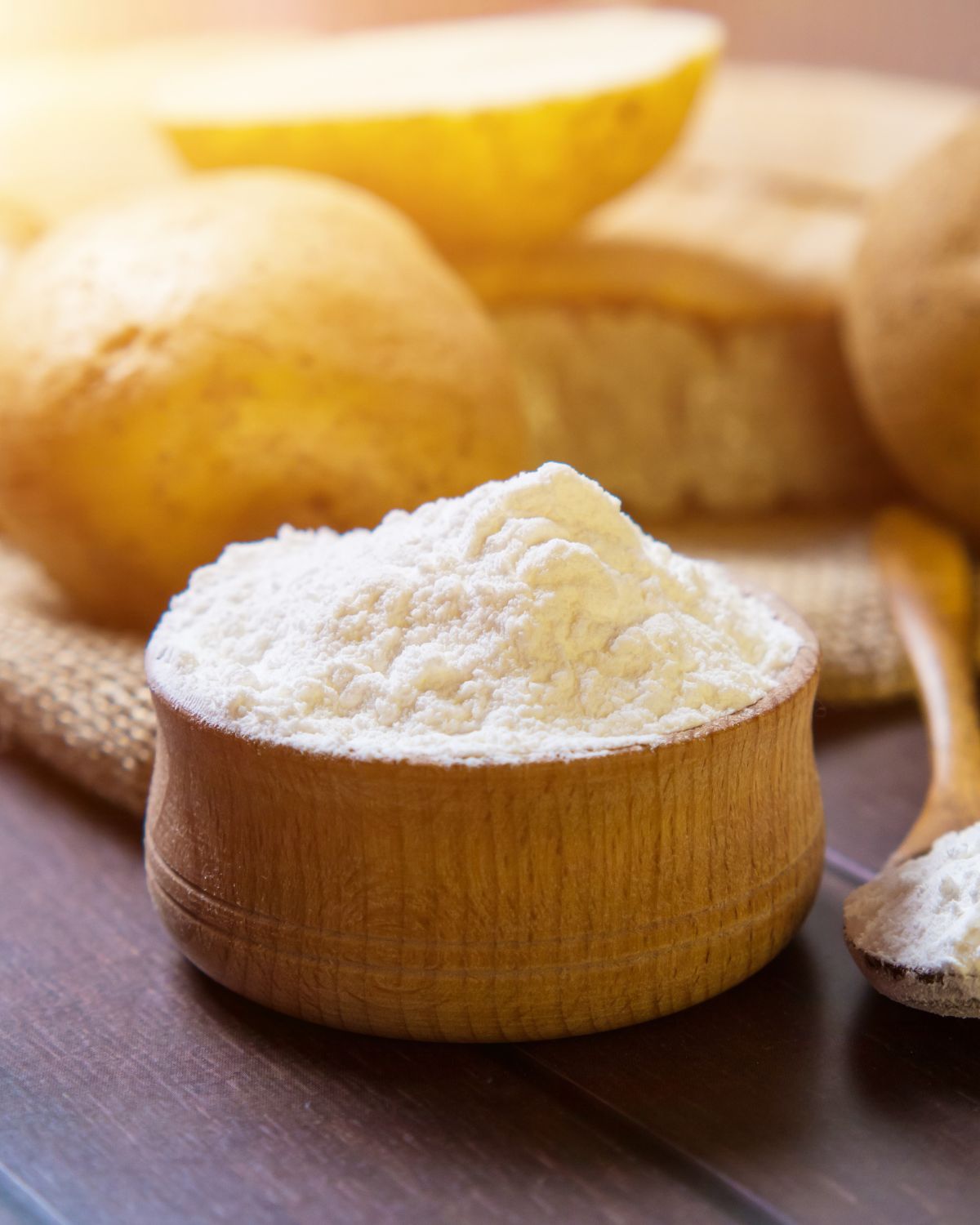
🤔 What is Potato Starch?
Potato starch is a fine powder that is derived from the starch in potatoes when they are processed. It’s a popular ingredient in cooking and baking for adding a thick and smooth texture.
From stews to sauces, and gravies to soups, you can add it to almost any dish to enhance the texture by making it thicker, but it’s also flavorless. It's fantastic to thicken soups and thickening sauces, such as this Chinese Tofu Curry or in this Thai noodles with gravy. It really is great for savory dishes as well as sweet baked goods.
It was first made in the United States in 1831, so its history dates back almost 200 years. To make it, potatoes are crushed to extract the starch grains, which are then dried until a white powder is formed.
👀 Why potato starch?
Besides the thickening properties of potato starch, many other aspects make it an exceptional ingredient in the culinary world too! That includes:
- Gluten-free - making it suitable for people with celiac disease or gluten sensitivity issues.
- Neutral taste - the neutral flavor of potato starch doesn’t surpass the other flavors in recipes. So it can be a go-to choice for almost everyone.
- Versatile - it is easy to whip up different recipes using potato starch. It can be used for various recipes, for example, soups, stews and custards etc.
- Binder - potato starch is actually a binding agent, on top of everything else! So it helps to create an end product that is moist and chewy as well as gluten-free.
It’s also often grain free, dairy free and soy free, depending on the brand that you buy. That means it is great for people with allergies.
Another great thing about potato starch is that it forms a transparent gel in order to thicken sauces. So that means it doesn’t alter the color of the ingredients, or the finished dish.
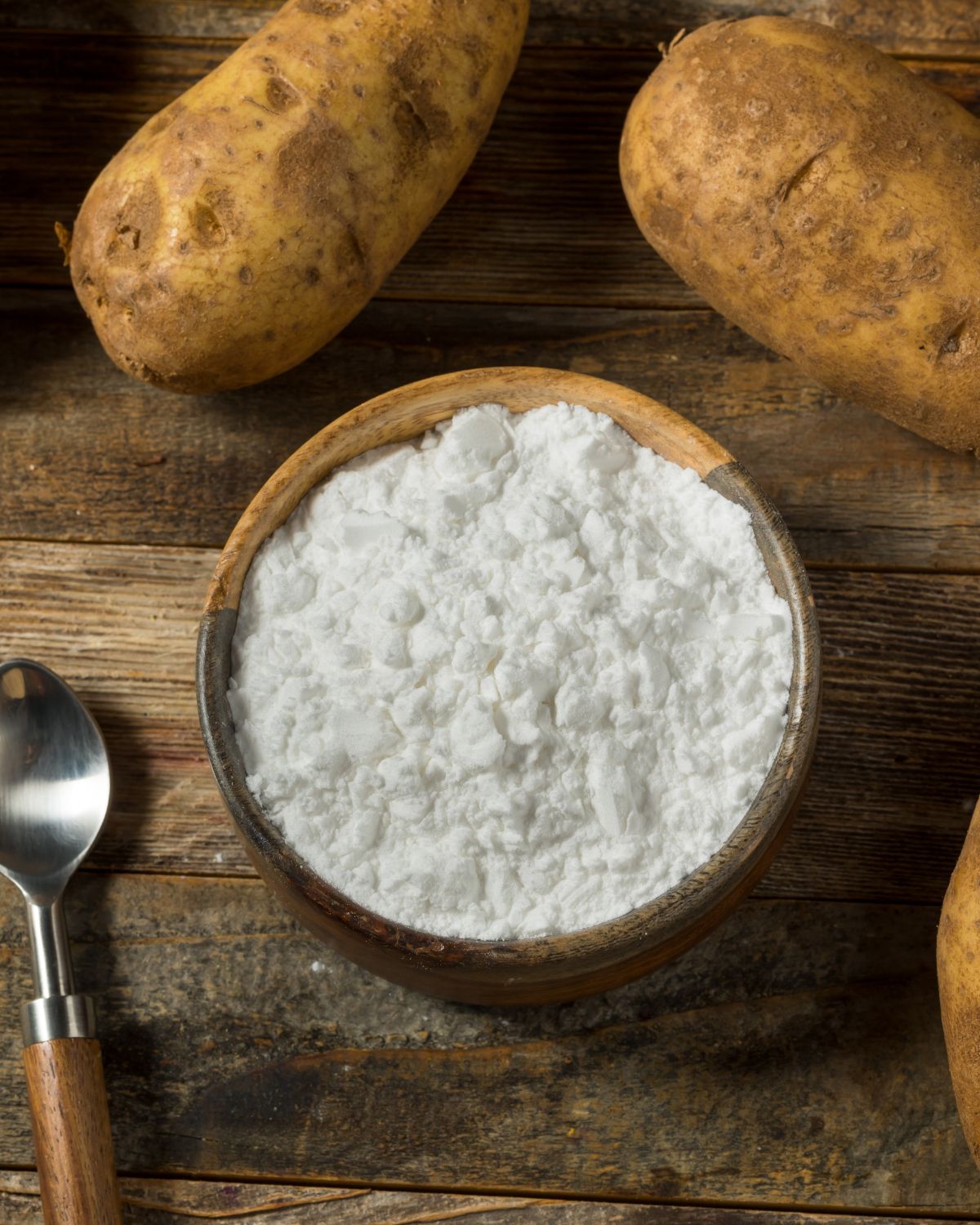
👩🍳 What is potato starch used for?
Potato starch is primarily used as a thickening agent in recipes such as soups, puddings, stews and sauces. All these recipes have potato starch as an integral ingredient.
Besides this, it can also be used as a coating for fried foods, such as tofu. Coating tofu with potato starch instead of corn flour gives it a nice crispy and irresistible texture. It’s even thought to be better than corn flour!
Potato starch is extensively used in the baking industry. It is used as a binding ingredient that maintains the texture of baked goods by keeping everything together. And it's a key ingredient in gluten free baking.
In addition, it is worth noting that potato starch is different to potato flour. That's because the potato starch is just the dried starch from the potato but potato flour is made up of fiber, protein and has some flavor. So they can't be used interchangeably.
🥔 The best potato starch substitutes
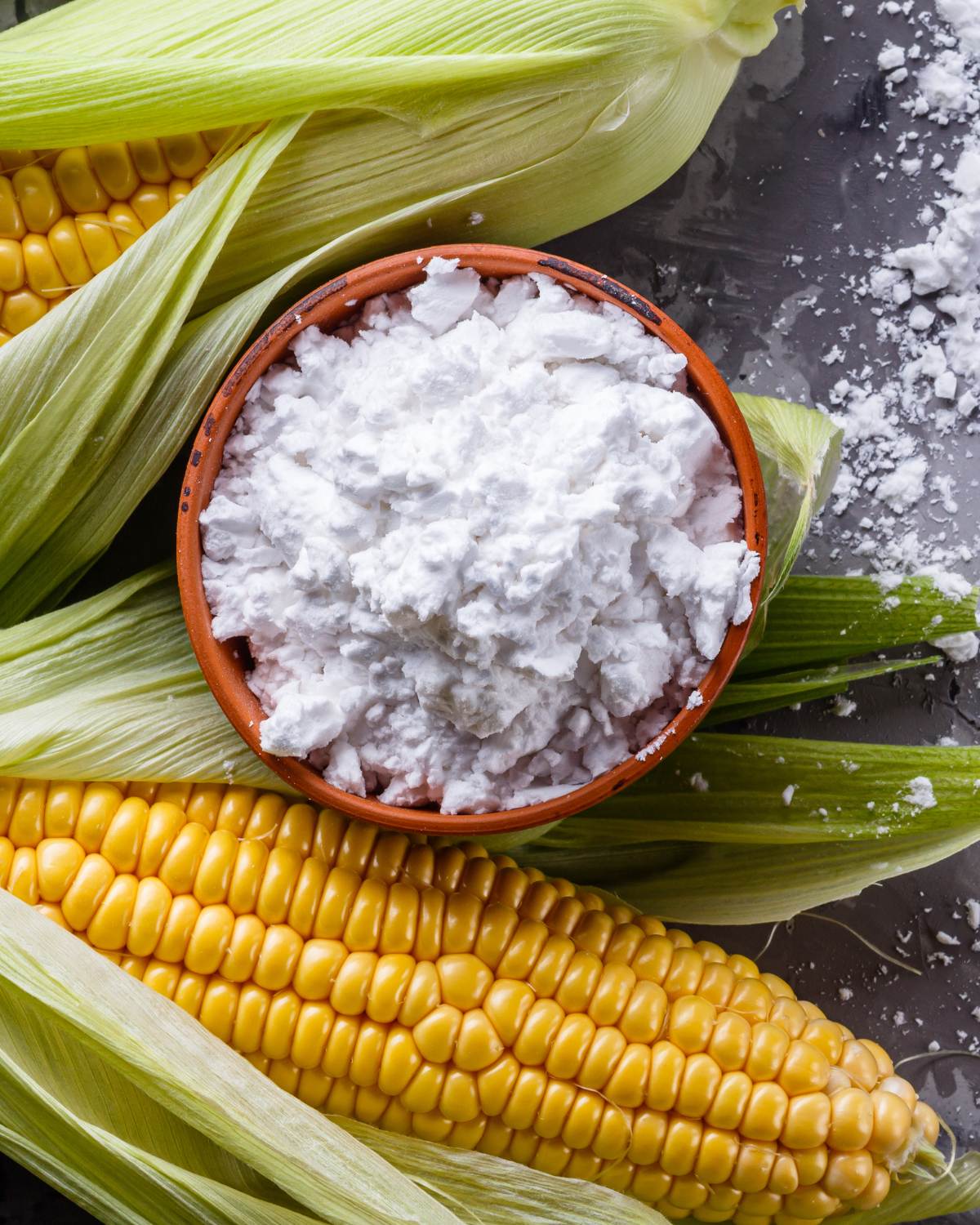
Corn starch
Also known as corn flour, it’s the most popular alternative for potato starch. Extracted from the flesh of corn kernels, it’s primarily used as a thickener. It can also be added to baked items, giving pastries and pies a rich and crumbly texture.
Due to its neutral taste and thickening properties, it’s an excellent potato starch alternative.
However, we recommend not to use it in dishes that require high heat as it doesn’t fare well at very high temperatures. Instead, take a dish off the heat, then add the cornstarch mixed with water for best results.
Corn starch is the best potato starch substitute, but don't worry, if you haven't got this in the cupboard there are lots more to choose from!
1:1 - substitute 1 tablespoon of potato starch for 1 tablespoon of cornstarch
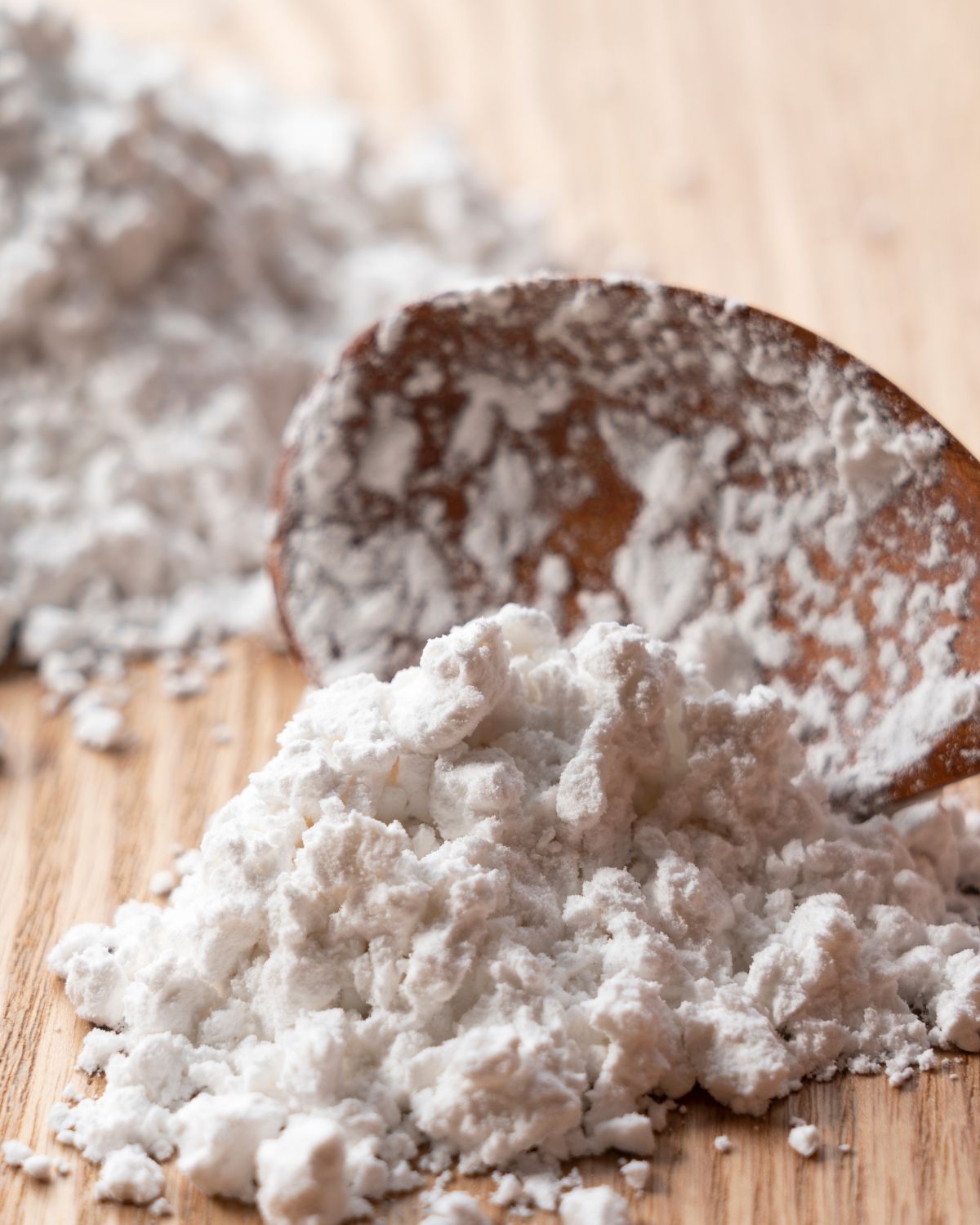
Tapioca starch
The next best potato starch substitute is tapioca starch (AKA tapioca flour). It is extracted from a root vegetable known as cassava. In South America, cassava root is widely used as an alternative to potatoes. So, it’s not too much of a surprise that it’s an excellent potato starch substitute.
Like potato starch, tapioca starch has a neutral taste with a slight hint of sweetness. While it can be used for frying, baking and thickening, our favorite is thickening pie fillings using it. Ensure not to add too much, or your baked items will become chewy.
When using tapioca starch to thicken a sauce, it can be used as potato starch. However, when using it in baking, it may need 25-50% more than potato starch. To avoid chewiness, you may need to increase the other ingredients too, so this may take some experimentation.
1:1 - substitute 1 tablespoon of potato starch for 1 tablespoon of tapioca starch (in sauces)
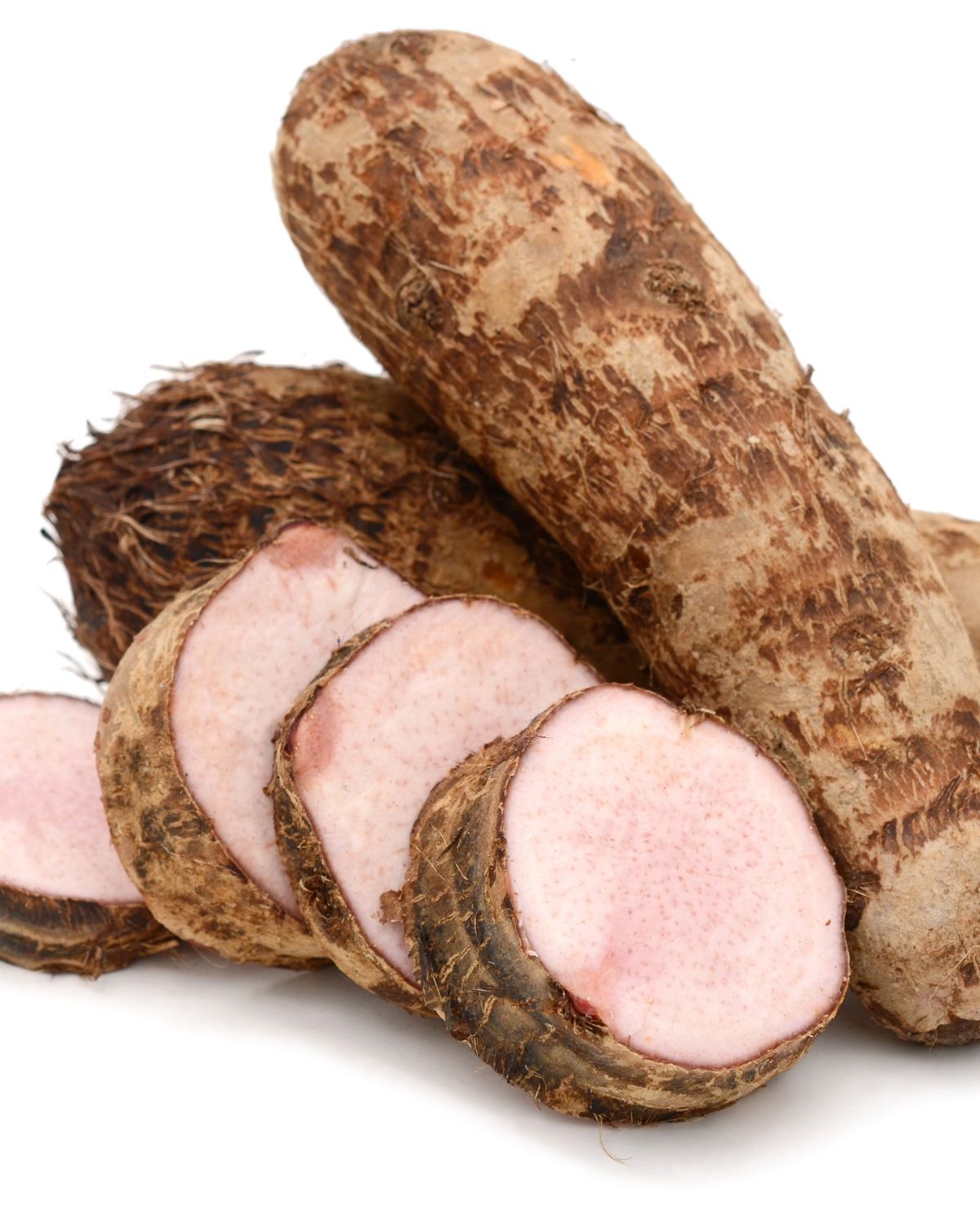
Arrowroot powder (arrowroot starch)
Like tapioca and potato starch, arrowroot powder (AKA arrowroot starch or arrowroot flour) is extracted from the roots of a plant. That plant is the maranta arundinacea. It is native to the West Indies and parts of Southern and Central America.
Arrowroot powder is primarily used as a thickener in soups and sauces. It has a slightly sweet flavor, but it doesn’t alter the taste of any dish. Meaning it's still an excellent potato starch substitute.
However, too much of it can produce a thick and gloopy texture. But as long as you add the right amount, you’ll get the perfect texture with this potato starch substitute.
1:2 - substitute 1 tablespoon of potato starch for 2 tablespoons of arrowroot powder
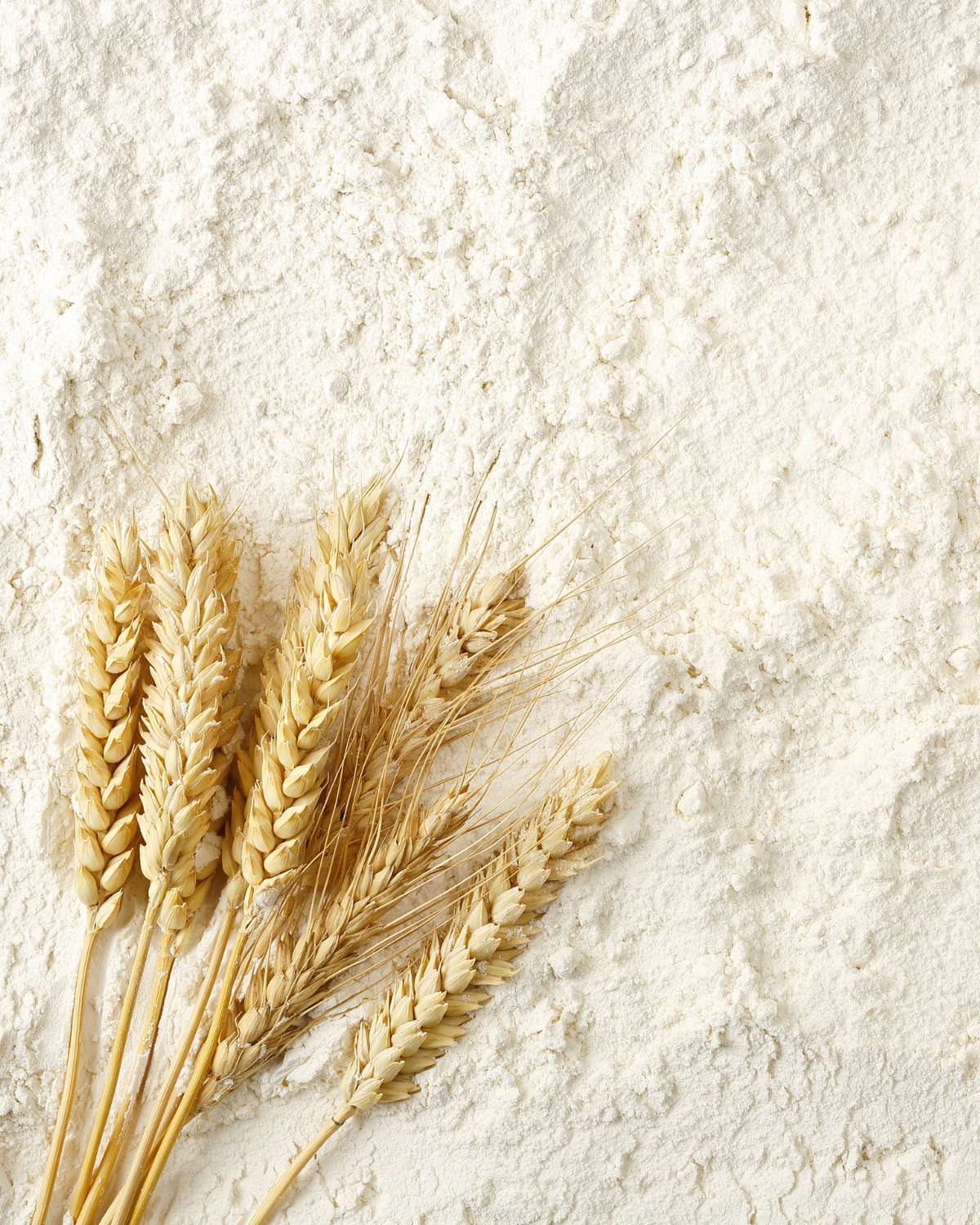
Wheat flour
If you’re looking for a potato starch substitute that is widely available, then you won’t find a better option than wheat flour. Besides easy availability, it’s easy on the budget too.
It’s also called all purpose flour and as the name says, it’s a multipurpose ingredient. It can be used for thickening, frying and baking. We recommend it as a great alternative because wheat flour's natural binding and thickening properties are similar to potato starch.
As for the flavor, you won’t even notice that you’ve added a substitute for potato starch in your recipe when you use wheat flour.
The only downside of using this option is that it’s not gluten-free, so people with celiac disease or gluten sensitivity should avoid it. If you need it to be a gluten free flour alternative, we recommend using one of the other 5 options listed, which are perfect for gluten free cooking techniques.
When using it instead of potato starch, we tend to go for a 1:2 ratio, as this gives the best results.
1:2 - substitute 1 tablespoons of potato starch for 2 tablespoons of wheat flour
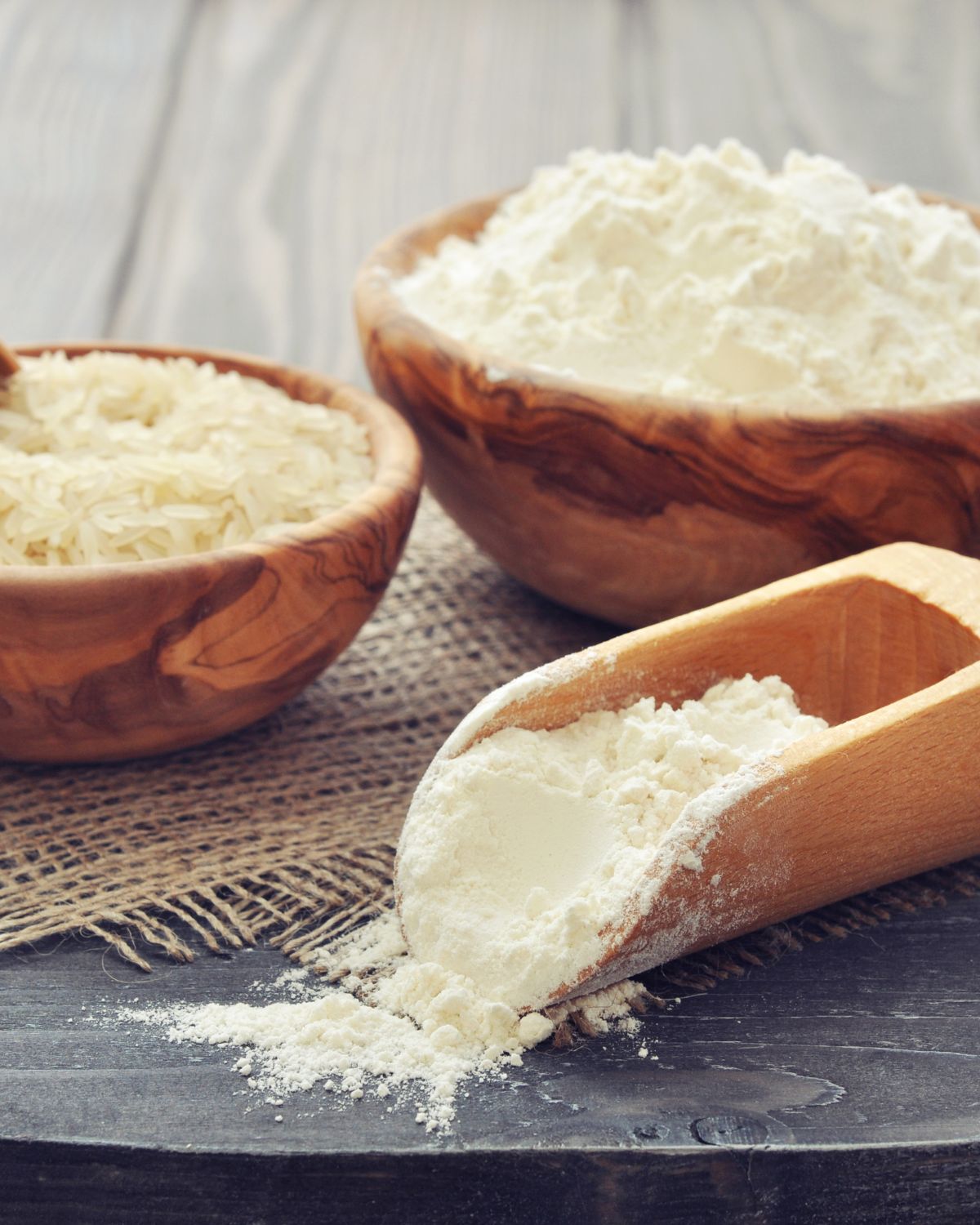
White rice flour
White rice flour works well as a substitute for potato starch in gluten free baked goods. Other alternatives also work fine, but white rice flour is one of the best because it’s heavier than them.
It’s also fine as a thickener for soups and stews. However, it’s not as good as other potato starch alternatives in sauce-based recipes.
Overall, rice flour is a great replacement for potato starch in both baking and frying foods. However, the thickening and binding properties are not as good as potato starch.
It’s also worth bearing in mind that rice flour has a gritty texture, and therefore may not be best suited for recipes that need to have a smooth texture.
In addition, it’s 100% gluten free, so that means it’s perfect for gluten free friends and family.
1:2 - substitute 1 tablespoon of potato starch for 2 tablespoons of white rice flour
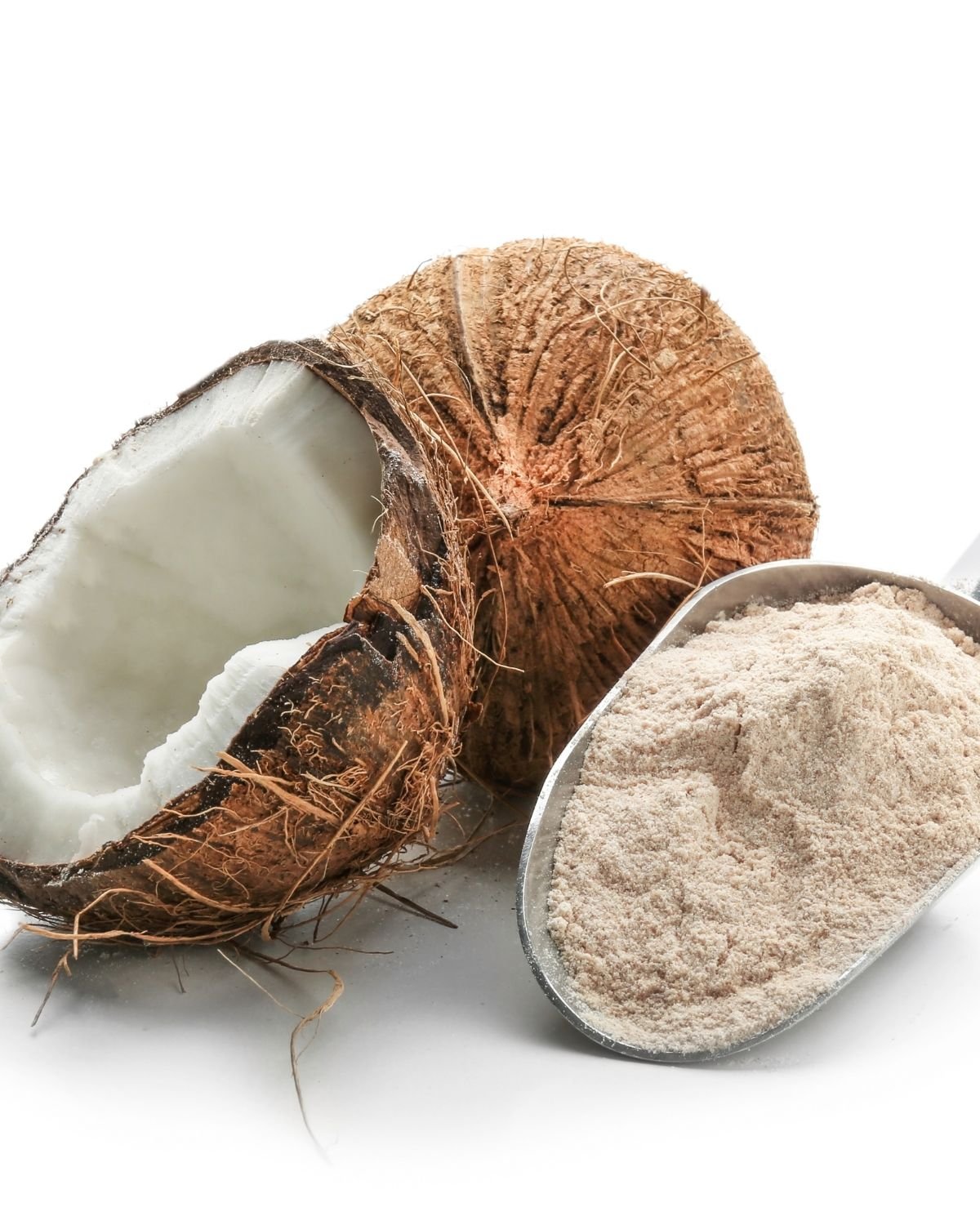
Coconut flour
For many reasons, coconut flour is one of the best substitutes for potato starch. Made from dried coconut flesh, it is a great source of fiber, protein and other key nutrients (source). It is also paleo and keto diet friendly.
Like potato starch, it can absorb liquid really well, which makes it a good thickening agent for soups, sauces and other dishes.
Unlike potato starch, coconut flour, of course, has a coconut flavor that is also slightly sweet. This makes it perfect for desserts and sweet baked items - which is also great for a gluten-free diet and gluten-free baking.
However, when using this option as an alternative to potato starch, try to use 10% to 15% less, as flour made from coconut tends to absorb a lot of water and can make a dish heavier.
1:0.85 - substitute 1 tablespoon of potato starch for 0.85 tablespoon of coconut flour
🤨 Other alternatives (that we don’t recommend)
Almond flour
Although almond flour is healthy, we don’t recommend it as a potato starch substitute. That’s because it isn’t quite as effective as a thickening and coating agent.
Moreover, its mildly sweet and nutty flavor can interfere with the original flavors of your dish. So, the result could be disappointing.
Oat flour
Oat flour has a different texture than potato starch, which could alter the finished recipe's overall texture. The binding properties also differ, and it isn’t gluten free.
Water chestnut flour
The nutty and sweet flavor of water chestnut flour is the primary reason why we don’t recommend it as a suitable substitute. It can completely alter the flavor of a recipe.
Similarly, water chestnut flour has a grainy texture, unlike the smooth texture of potato starch. So, we don’t like it as a potato starch substitute.
Ground matzo
While many websites recommend ground matzo as an alternative to potato starch, we beg to differ.
Not only is it highly absorbent, but it also has a strong flavor that can interfere with the flavors of your dish. It may work for some people, but we’ve found our list of alternatives to work much better.
FYI - even though these options are not the best potato starch substitute, if you have nothing else, it's still worth giving them a go! Other options that we have not mentioned include instant mashed potato, quinoa flour, glutinous flour and mochi flour.
💭 FAQs
These aren’t the same, even though both are made from potatoes and are made up of a fine powder. Potato starch is made from only the starch of potatoes, but potato flour is a white powder made from dehydrated whole potatoes.
No, they aren’t the same. Potato starch is extracted from crushed potatoes and corn starch is extracted from the flesh of corn kernels. Although we mentioned that these ingredients are interchangeable, this doesn’t make them completely identical.
We recommend corn starch, wheat flour and tapioca starch as the best potato starch substitutes. For details, check the list in the article above for the best (and worst) alternatives for potato starch.
If you're looking to replace other common ingredients, check out these substitute articles:
🌟 Summary
So, next time you see potato starch missing in your pantry, fret not! Now, you have this list of the 6 best potato starch substitutes that will provide fantastic alternatives.
Corn starch, tapioca starch, arrowroot powder and white rice flour are all great alternatives. We don’t recommend almond flour, oat flour, water chestnut flour, instant mashed potatoes or ground matzo.
We would love to hear your feedback if you try an alternative. So, let us know in the comments below how it goes!

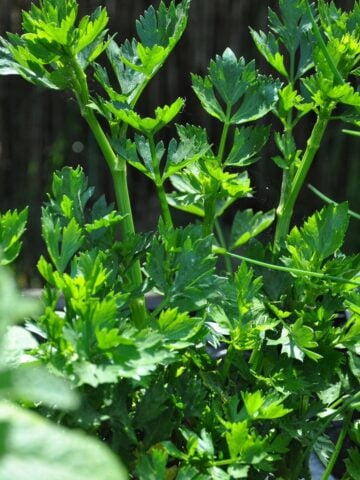

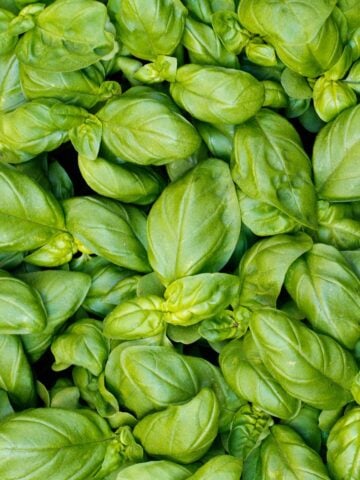
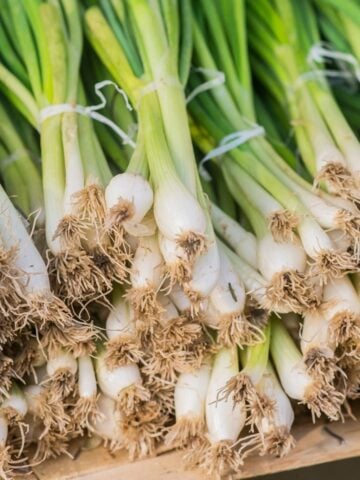
Comments
No Comments